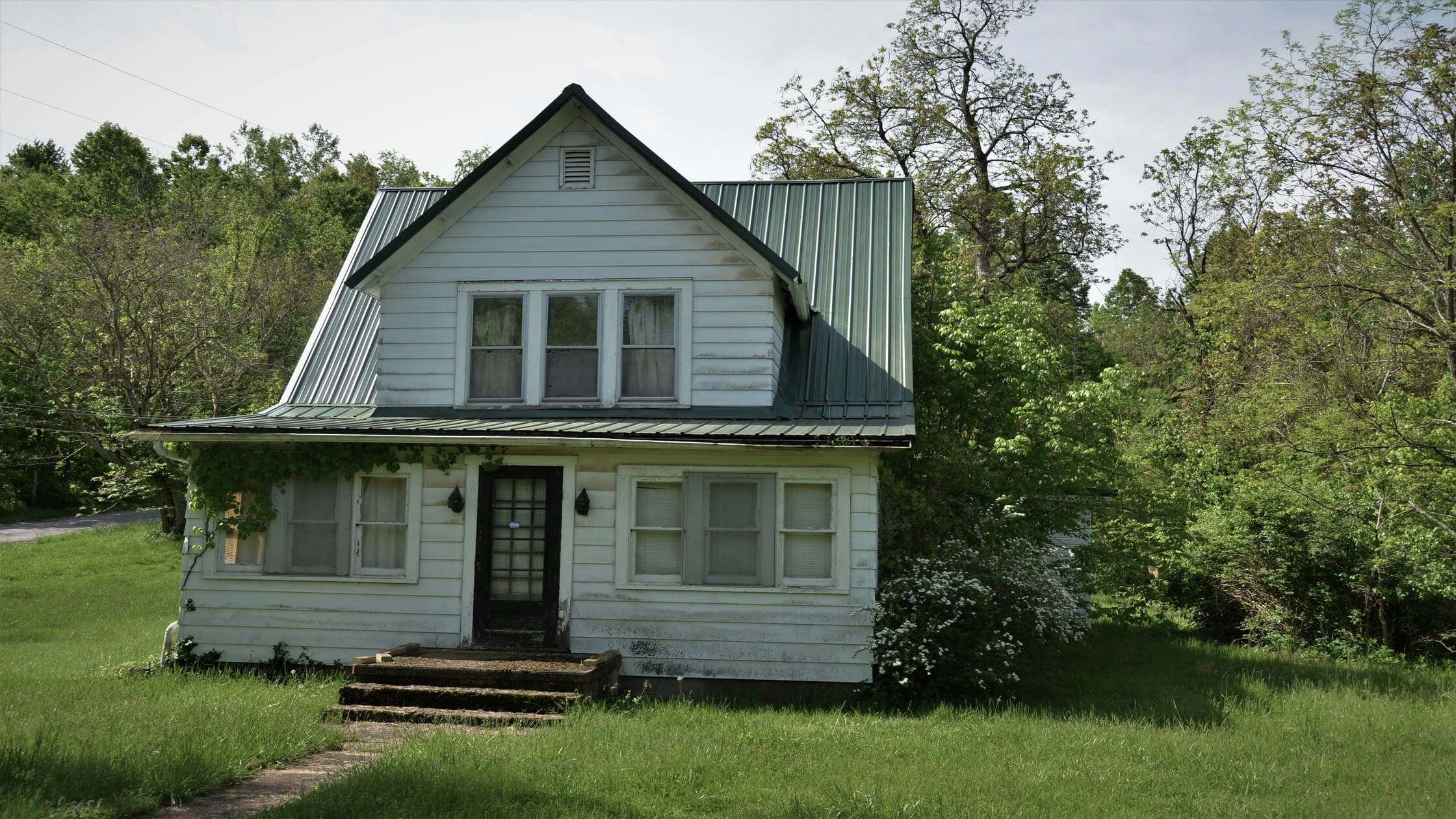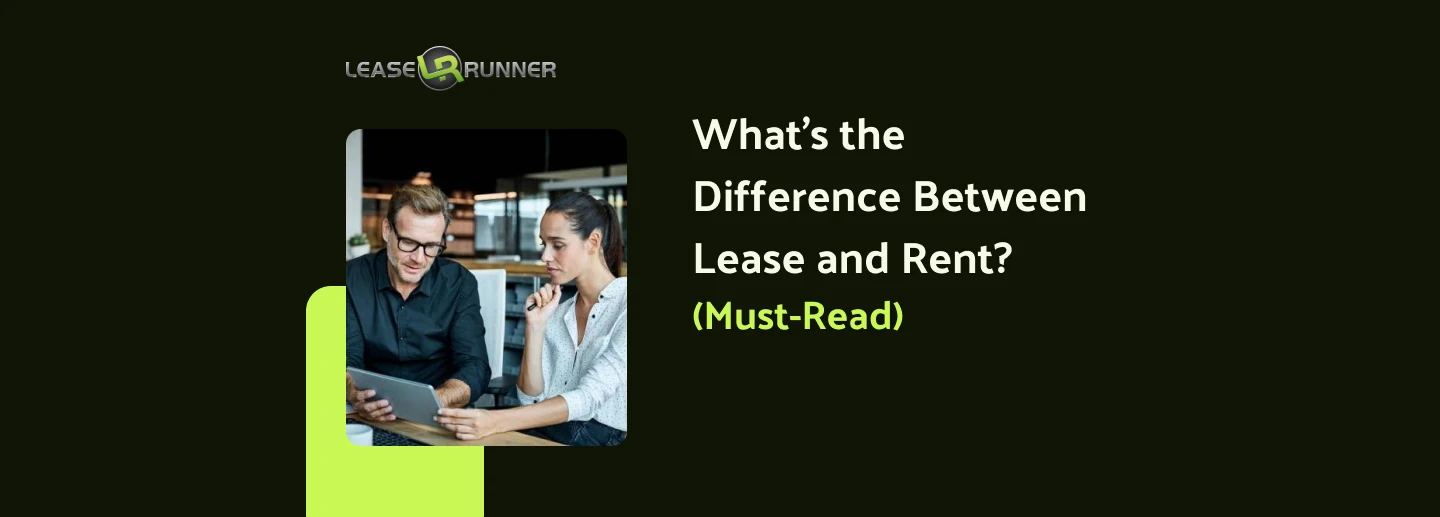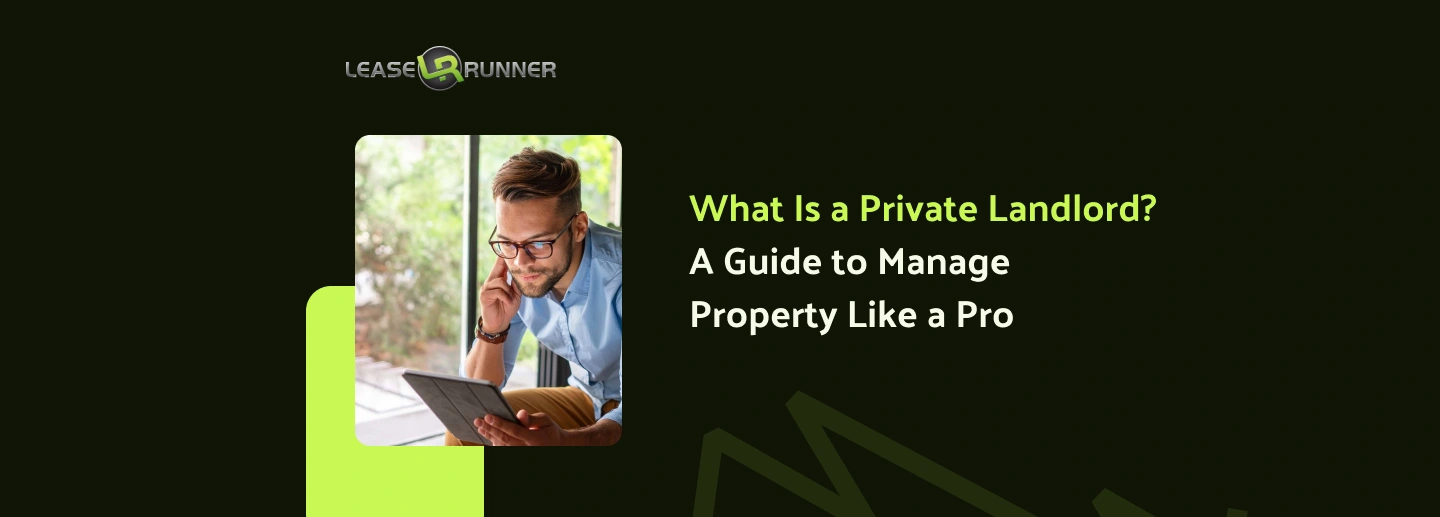Are you confused about the difference between a lease and rent? Our detailed guide covers every aspect, from contract terms to financial impacts, so that you can choose the best option for your needs.
Whether you're a first-time renter or a seasoned landlord, knowing these distinctions can save you money and headaches. Don’t hesitate any longer, scroll down for more useful information now.

Quick Facts Table About “What’s The Difference Between Lease and Rent?”
What Is a Lease Agreement?
A lease is a common method that landlords and tenants utilize to establish permanency and structured rules. It defines a specific term in which the occupants will live on their premises as defined by the landlord and tenant rules. A lease for a house provides for both the landlord and the tenant the aspects of financial and legal obligations before signing.
Definition of Lease Agreement
A lease agreement is a formal agreement between a landlord and a tenant. It outlines rent, length of lease, and responsibilities for both parties. While leases are often 6-12 months in length, many last longer. In asking what it means to lease a home, it means you are securing those terms for a length of time.
For landlords, leases serve to ensure a continuous cash flow in income, and that turnover will be less. For tenants, leases ensure housing stability and a fixed rent. Understanding how a lease on your house works shows that rent is typically fixed for the entire term, and eviction will only occur when specific rules have been broken.
Pros and Cons of Leasing
For landlords:
- Pros: Guaranteed income, fewer vacancies, and easier planning.
- Cons: Harder to raise income during the lease, and a lengthy process to evict if the rules are broken.
For tenants:
- Pros: Fixed rent, housing security, and expected monthly expenses.
- Cons: Penalties if you leave before the lease is up, and limitations on changes such as pets or upgrades.
An example of what leasing a house means is a one-year lease for a rental price of $1,500 per month, stating that pets are not allowed unless the landlord agrees. The landlord must ensure the land is kept habitable for the entire lease.
What is a Rental Agreement?
A rental agreement provides flexibility, which is beneficial for people or landlords who only need short-term arrangements and are not willing to commit long-term.
Definition of Rental Agreement
The primary difference between leasing and renting is the length of the commitment. A rental agreement is usually month-to-month and automatically renews.
Either side can end it with approximately 30 days’ notice. It's a great option when you have no concern for the length of a lease on an apartment, like a student or temporary worker, or a person in transition.
Landlords are able to increase rent much more frequently and end rental agreements more quickly. Tenants can move, without penalty.
Pros and Cons of Renting
For landlords:
- Pros: Freedom to raise rent with the market, and quick adjustments to tenant arrangements.
- Cons: Higher turnover rate, increased vacancies, and frequent screening.
For tenants:
- Pros: Flexible move-out dates, no long-term contracts.
- Cons: Increased rent, and not guaranteed renewal.
For example, when a house is available for lease on a month-to-month rental, let's say the tenant pays $1,200 with a 30-day notice to move out. The landlord can provide 30 days' notice to increase rent or terminate the rental.
Tip: Knowing what a lease means in real estate helps in comparing both options. You can lease a house for security or choose to rent for flexibility, depending on your needs and goals.
Key Differences Between Leasing and Renting

For many tenants and landlords, it’s helpful to know the difference between leasing and renting before signing a contract. While some people think "is for lease the same as for rent," both arrangements work in two very different ways. Understanding the differences can help you decide which is most suitable for your situation.
1. Duration
Time commitment is the clearest distinction. A lease agreement generally runs for a fixed period—most often six to twelve months—although it can be longer when both parties agree. When you ask “what is a lease for a house?”, it means the tenant is committing to stay for the entire agreed term with fixed rent and rules in place.
A rental agreement, however, typically operates month-to-month. Either the landlord or the tenant can end it with proper notice, usually 30 days. This works well for people who do not need to worry about how long a lease on apartments might last, such as seasonal workers or students on short courses.
2. Flexibility
Leasing a home generally provides stability with little change during the lease term, but breaking a lease early usually results in a fine or possible litigation issues. Renting provides much more ease of flexibility.
Tenants can leave sooner and landlords can change rent or the terms, with little notice, which is great for those with inconsistent schedules.
3. Legal and Formal Terms
A lease is a detailed legal contract. Knowing “how does a lease work on a house” means understanding that it sets out rent, maintenance duties, and penalties for violations. Everything is spelled out to avoid disputes.
Rental agreements are simpler. They still carry legal weight but typically contain fewer clauses. The simpler format makes starting or ending the arrangement quicker, but it can also leave both sides with less protection.
4. Stability and Financial Planning
Leases deliver stability. Rent stays the same until the term ends, making it easier to budget. That predictability is central to what a lease means in real estate—consistent payments without surprise changes.
Rentals are less predictable. Rates can go up with market shifts, and tenants may be asked to leave on short notice, which can be challenging for long-term planners.
5. Use Cases
Leases work best when both sides want security, such as a family settling into a new home. Renting is better for short stays or when plans might change soon. For example, you can lease a house for a year to secure housing, or choose a rental apartment for three months while exploring job opportunities.
Landlords and tenants looking for formal, fixed-term arrangements can explore our lease agreement templates. Those seeking more flexible arrangements may benefit from our online rental contract tools, which make short-term rentals easy to manage.
Comparison Table: Lease vs Rental
Can You Lease a House Instead of Renting?
Yes, you can. But the difference matters. In real estate, a lease means you and the landlord agree on fixed rules, rent, and how long you'll stay, often 6 to 12 months. A rental (or month-to-month agreement) focuses on short-term flexibility, with rules that can change quickly.
Choosing “lease” or “rent” isn’t just about words. When you see a property for lease, expect a longer stay and clear, written terms. If you see for rent, you’ll usually get a shorter contract with more room to move out on short notice.
When Leasing a Home Makes More Sense Than Renting
Renting is attractive to people who want stable housing costs and stability from month to month. Here are some reasons you may find leasing is the right option for you:
- Fixed Commitment: A lease means you are committed to the rent and the length of tenancy, typically for six to twelve months. Renting can change on a month-by-month basis.
When you lease property, however, when you fix the rent, it will stay the same per the lease terms unless changes are made in writing by both parties as per the lease agreement, and again, multiple that require variation in monthly rent increases and the tenant's obligations.
For example, if you sign a 12-month lease for $1,800 per month, you will have to pay $1,800 each month for a year; no extensions or reductions can be made unless you reach a formal agreement by both parties in writing.
- Long-Term Planning: Most importantly, leasing property aids in long-term planning. When you enter a lease with an owner or property manager on a house or unit, you can fully understand the process with respect to rights and obligations for the entire length of the lease.
Every person in the arrangement, except in an emergency, knows what to expect. From the predictability, tenants are able to better manage their finances, confirmation of utility arrangements, and be clearer when requesting upgrades, improvements, or repairs from the landlord or property manager.
- Legally Documented and Protected: A lease agreement is a legal commitment. Legally binding means the lease agreement protects both parties legally.
An example is if your landlord does not complete repairs and rent is due, or the tenant does not pay rent, the lease agreement outlines the processes for each party to follow regarding any issues.
The protection afforded is more extensive, too. For example, if the tenant did not pay rent without a lease agreement, an informal agreement would be limited in terms of remedy.
- Larger Security Deposit: Longer-term leases usually require larger amounts for security deposits. This means less risk for the landlord and encourages securing the integrity of the property.

When Renting a Home Is the Better Option
Renting a home on a month-to-month or short-term basis works better for those valuing flexibility over stability. Here’s when renting shines:
- Short-Term Needs: If life plans are uncertain, like a temporary job, school, or moving to a new city, renting lets you avoid being locked into a long lease. For example, college students or contract workers often prefer rentals that allow them to leave with 30 days’ notice.
- Variable Lifestyle: Renting suits those whose living situations may change quickly. If you expect shifting family needs or job relocations, short-term rental agreements allow adaptability.
- Ease of Exit: Rental agreements usually require less notice to terminate, often 30 days, compared to breaking a lease early, which may involve penalties or fees. This makes renting less risky if your plans are unsure.
Which Option is Best for You? (A Guide for Landlords & Tenants)
Whether you lease or rent is based on your unique goals, lifestyle, and the local housing market. Below are some general guidelines:
For Landlords:
- If you like the idea of long-term income stability and less turnover of tenants, offering leases may be the best option. Leases secure tenants for a term and provide more predictable income.
- If you want flexibility to quickly adjust the rent or cater to short-term tenants in an active housing market, renting would be preferable.
For Tenants:
- If you want to stabilize home costs, want to avoid frequent moving, and would like a legal assurance as to your housing arrangement, then leasing meets your needs.
- If you are on the fence about how long your stay is, you need a flexible move-out date, then renting will give you this freedom and less commitment.
Understanding what is leasing vs renting will also help develop a framework of understanding the trade-offs involved in either option. For example, a landlord may ask, "Is for lease the same as for rent?" In many cases, it depends on the duration or term of the rental agreement.
When a property is for lease, it typically means a more formal training type contract, for a longer term, that is fixed. Leases are typically longer than renting, with more paperwork and more commitment (up-front payment as security). Renting typically ties the client to a shorter-term lease with flexibility to leave.

Conclusion
In this guide, we have explored what's the difference between lease and rent from every angle. We have defined what a lease is and how it works compared to renting a home. We have also looked at the benefits and drawbacks of each option, the fee structures, the duration, and the impact on both landlords and tenants.
By understanding these differences, you can make better decisions that fit your needs and circumstances. Remember, when choosing between leasing or renting, consider your long-term goals, financial stability, and the flexibility you need.
Whether you choose a lease or opt for renting, being well-informed will help protect your interests and ensure a smooth real estate experience. For more information, visit our LeaseRunner blog!
FAQs
Q1. What does it mean when a house is for lease?
It means the property is available under a fixed-term contract with set rental terms.
Q2. How does a lease work on a house?
A lease sets a fixed rental rate, duration, and detailed responsibilities for both the tenant and the landlord.
Q3. Is for lease the same as for rent?
No, a house for lease implies a fixed-term contract, whereas rent usually suggests a more flexible, short-term arrangement.
Q4. How long are leases on apartments?
Leases on apartments can range from six months to a year or more, depending on the agreement.







